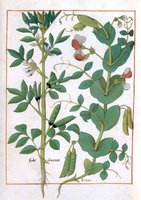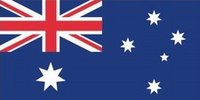 Today, April 25th …
Today, April 25th …Andrew Boorde – English physician, failed Carthusian monk, writer of the first guide-book to Europe, and possible reluctant spy for Cromwell – died on this day in 1549 in prison. There are many uncertainties about his life: his date of birth (in 1490), the reason for his imprisonment (he may have kept “loose women” in his quarters), and how he died (he may have taken poison).
What is certain is that he left a rich legacy in his four books, one of which 'A Compendyous Regyment or a Dyetary of Helth', published about 1542 is a marvelous record of medical thought at the time. He describes the ideal positioning for a home, the importance of “pure and fresshe ayre” and good sanitation, and of course he has much to say on nutrition.
He stressed the importance of a balanced diet, exercise, a quiet life. Wine, he said, “must be fyne, fayre, and cleare to the eye, it must be fragrant and redolent”, but he had some reservations about beer: “nowe of late dayes it is moche used in Englande to the detriment of many Englyshemen” for it “doth make a man fatte, and doth inflate the bely”.
Boorde refers to the problem of windiness of the belly again when he talks about peas and beans, and we would not argue with that theory today – althouth the second property that he attributes to beans might surprise.
Of Peason and Beanes.
Peason the whiche be younge be nutrytyve, howe be it they doth replete a man with ventosyte. Beanes be not so moch to be prayesed as Peason, for they be full of ventosyte, although the skynes or huskes be ablated or caste away, yet they be a strong meate and doth provoke veneryous actes.
A cookbook contemporary with Boorde’s work - ‘A Proper newe Booke of Cokerye’ (1545) gave these recipes for beans:
To frye Beanes.
Take youre Beanes and boyle them and putte them into a fryinge panne with a dyssche of butter, and one or two onions, and so lette them frye tyll they be browne altogether, then caste a lyttle salte upon them, and then serve them forthe.
To make a tarte of beanes.
Take beanes and boyle them tender in fayre water, then take theym oute and breake them in a morter and strayne them with the yolckes of foure egges, curde made of mylke, then ceason it up with suger and halfe a dysche of butter and a lytle synamon ad bake it.
Tomorrow: A right royal fish.
Quotation for the Day ...
"Abstain from beans. There be sundry interpretations of this symbol. But Plutarch and Cicero think beans to be forbidden of Pythagoras, because they be windy and do engender impure humours and for that cause provoke bodily lust." Richard Taverner
Above and Beyond ...
 Today in Australia it is Anzac Day, the anniversary of the landing on the Turkish peninsula at Gallipoli in 1915, and Australian readers were probably expecting a post on Anzac Biscuits. So as to not to disappoint or appear unpatriotic, my story "Hardtack to Anzacs" appears on The Companion to the Old Foodie site.
Today in Australia it is Anzac Day, the anniversary of the landing on the Turkish peninsula at Gallipoli in 1915, and Australian readers were probably expecting a post on Anzac Biscuits. So as to not to disappoint or appear unpatriotic, my story "Hardtack to Anzacs" appears on The Companion to the Old Foodie site.
this is going to sound ridiculous and possibly even insulting to you, but we, while I was a college student in Ohio, used to celebrate an anual ANZAC day party. Some follows around 1991 or 1992 just wanted an excuse to throw a party, and it just happened that ANZAC day that year fell on a weekend. We kept theowing the party until 1996. And we still remember it fondly. Crazy boys from Ohio.
ReplyDeleteAnyway, as a cook, I'm really enjoying your site. You're welcome to visit mines, but they're both in spanish.
Also... welcome to the eGullet society. If nothing else, it's a great source of information (of course, the discussions are lively, too)
Hello Carlos
ReplyDeleteThankyou for your kind comments about the blog and eGullet. I am not at all insulted that you have celebrated Anzac day in the past!